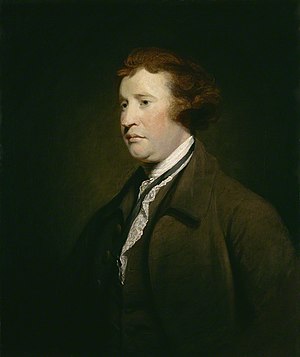
The effect of liberty to individuals is that they may do what they please; we ought to see what it will please them to do, before we risk congratulations which may be soon turned into complaints.
Share this quote:
Our patience will achieve more than our force.
Share this quote:
Certainly, Gentlemen, it ought to be the happiness and glory of a representative to live in the strictest union, the closest correspondence, and the most unreserved communication with his constituents. Their wishes ought to have great weight with him; their opinions high respect; their business unremitted attention. It is his duty to sacrifice his repose, his /pleasure, his satisfactions, to theirs/, --- and above all, ever, and in all cases, to prefer their interest to his own.But his unbiased opinion, his mature judgement, his enlightened conscience, he ought not to sacrifice to you, to any man, or to any set of men living. These he does not derive from your pleasure, --- no, nor from the law and the Constitution. They are a trust from Providence, for the abuse of which he is deeply answerable. Your Representative owes you, not his industry only, but his judgement; and he betrays, instead of serving you, if he sacrifices it to your opinions.
Share this quote:
The proposition is peace. Not peace through the medium of war; not peace to be hunted through the labyrinth of intricate and endless negotiations; not peace to arise out of universal discord, fomented from principle, in all parts of the empire; not peace to depend on the juridical determination of perplexing questions, or the precise marking the shadowy boundaries of a complex government. It is simple peace, sought in its natural course and in its ordinary haunts. It is peace sought in the spirit of peace, and laid in principles purely pacific.
Share this quote:
But when the leaders choose to make themselves bidders at an auction of popularity, their talents, in the construction of the state, will be of no service. They will become flatterers instead of legislators; the instruments, not the guides, of the people. If any of them should happen to propose a scheme of liberty, soberly limited, and defined with proper qualifications, he will be immediately outbid by his competitors, who will produce something more splendidly popular. Suspicions will be raised of his fidelity to his cause. Moderation will be stigmatized as the virtue of cowards; and compromise as the prudence of traitors; until, in hopes of preserving the credit which may enable him to temper, and moderate, on some occasions, the popular leader is obliged to become active in propagating doctrines, and establishing powers, that will afterwards defeat any sober purpose at which he ultimately might have aimed.
Share this quote:
A conscientious man would be cautious how he dealt in blood.
Share this quote:
He that accuses all mankind of corruption ought to remember that he is sure to convict only one.
Share this quote:
I have not yet lost a feeling of wonder, and of delight, that the delicate motion should reside in all the things around us, revealing itself only to him who looks for it.
Share this quote:
When bad men combine, the good must associate; else they will fall one by one, an unpitied sacrifice in a contemptible struggle.
Share this quote:
It is generally, in the season of prosperity that men discover their real temper, principles and design.
Share this quote:
A representative owes not just his industry but his judgement
Share this quote:
The wild gas, the fixed air is plainly broke loose: but we ought to suspend our judgments until the first effervescence is a little subsided, till the liquor is cleared, and until we see something deeper than the agitation of the troubled and frothy surface.[Alluding to Joseph Priestleys Observations on Air]
Share this quote:
Whoever undertakes to set himself up as a judge of Truth and Knowledge is shipwrecked by the laughter of the
Share this quote:
History consists, for the greater part, of the miseries brought upon the world by pride, ambition, avarice, revenge, lust, sedition, hypocrisy, ungoverned zeal, and all the train of disorderly appetites, which shake the public with the same —“troublous storms that tossThe private state, and render life unsweet.”These vices are the causes of those storms. Religion, morals, laws, prerogatives, privileges, liberties, rights of men, are the pretexts.
Share this quote:
Ambition can creep as well as soar.
Share this quote:
He that wrestles with us strengthens our nerves and sharpens our skills. Our antagonist is our helper.
Share this quote:
Adversity is a severe instructor. ... He that wrestles with us strengthens our nerves and sharpens our skill. Our antagonist is our helper.
Share this quote:
Mere parsimony is not economy . . . expense and great expense may be an essential part of true economy.
Share this quote:
Politics and the pulpit are terms that have little agreement.
Share this quote:
All government - indeed every human benefit and enjoyment every virtue and every prudent act - is founded on compromise and barter.
Share this quote: